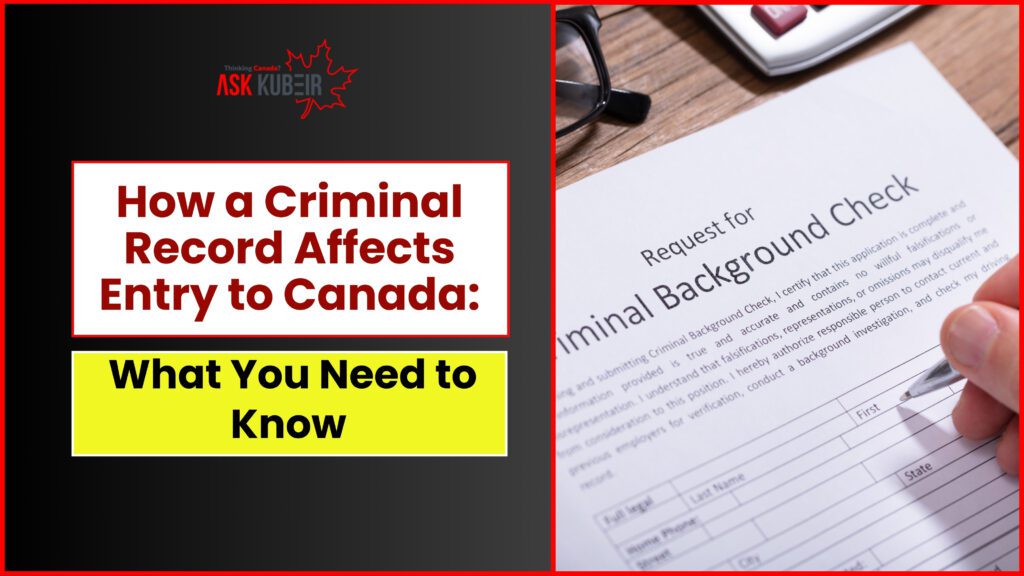
Canada has strict entry requirements, especially when it comes to criminal records. If you have a past conviction, you may be deemed inadmissible and denied entry. However, depending on the type of offence, the time that has passed, and specific legal remedies, you may still have options to visit Canada.
Understanding Criminal Inadmissibility
Canada assesses criminal inadmissibility based on its own legal standards, meaning even minor offences in other countries can be considered serious in Canada. Some key factors that determine inadmissibility include:
- The type and severity of the offence
- The number of offences on record
- The time elapsed since completing the sentence
How to Overcome Criminal Inadmissibility
If you have a criminal record, here are three main ways to gain entry into Canada:
1. Criminal Rehabilitation
Criminal rehabilitation is a permanent solution for overcoming inadmissibility. To be eligible:
- At least five years must have passed since completing your sentence (including fines and probation).
- You must demonstrate good conduct and proof of rehabilitation.
- The offence must be one that is eligible for rehabilitation under Canadian law.
Once approved, you will no longer be considered inadmissible due to that offence.
2. Temporary Resident Permit (TRP)
A TRP allows individuals with a criminal record to enter Canada for a specific reason, such as work, family visits, or emergencies. Unlike rehabilitation, a TRP is a temporary solution and requires:
- A strong reason for visiting Canada.
- Demonstrating that the benefits of your entry outweigh any risks.
- An application submitted in advance or, in some cases, at a border crossing.
TRPs are typically issued for a limited period and must be renewed if needed.
3. Deemed Rehabilitation
In some cases, individuals may be automatically deemed rehabilitated if:
- More than ten years have passed since completing their sentence (for a single, non-serious offence).
- The offence would be considered minor under Canadian law.
This means you would no longer be considered inadmissible and could enter Canada without applying for special permission.
Applying for Entry to Canada
If you have a criminal record, you should take the following steps before traveling to Canada:
- Obtain a copy of your criminal record.
- Compare your offence with Canadian laws to determine its severity.
- Consult an immigration expert to assess your options.
- Apply for rehabilitation or a TRP if necessary.
- Ensure all required documents are submitted well in advance of your planned travel date.
Can You Apply at the Border?
- By Land: In some cases, a TRP may be issued at the border, but applying in advance is recommended.
- By Air: Travelers are generally required to apply for a TRP before arriving in Canada.
Final Thoughts
Having a criminal record does not always mean you are permanently barred from Canada. With the right legal approach, you may still be eligible for entry. If you are unsure about your admissibility, seeking professional legal advice and applying in advance can improve your chances of a successful visit.
Need Help?
📌 If you believe your VISA application should be showcased in the most favorable light when submitting to immigration, feel free to book our services.
📌 To book an appointment with Kubeir – Licensed Canadian Immigration Consultant, click the “Book Appointment”
📲 You may also reach us at this number for all immigration-related services:
- (+𝟭) 𝟰𝟯𝟳-𝟳𝟳𝟳-𝟯𝟳𝟳𝟳 (Canada)
- +971 45 26 4646 (Dubai)
Disclaimer: This is for informational purposes only and not legal advice. Always consult experts like us or the official IRCC website for up-to-date details.
